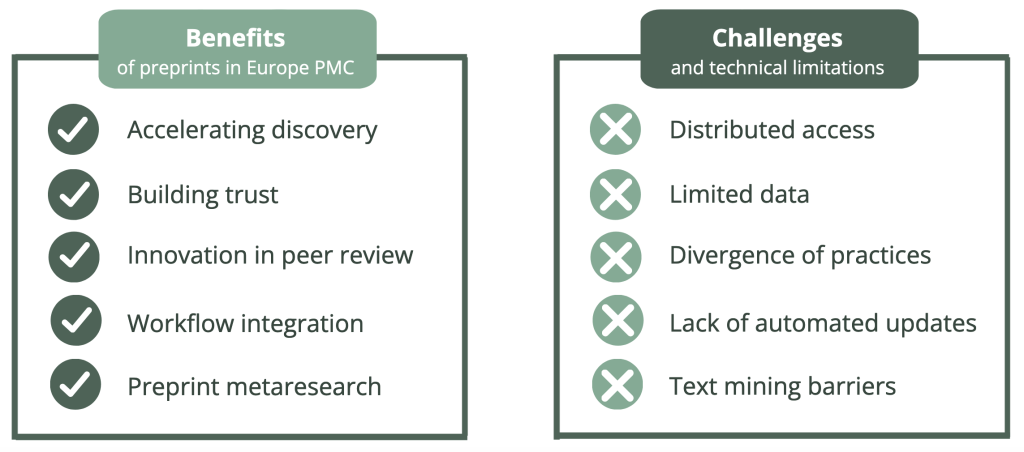
Finding preprints across many different platforms can be difficult. Here we explain how Europe PMC has built a database of life science preprints.

Finding preprints across many different platforms can be difficult. Here we explain how Europe PMC has built a database of life science preprints.
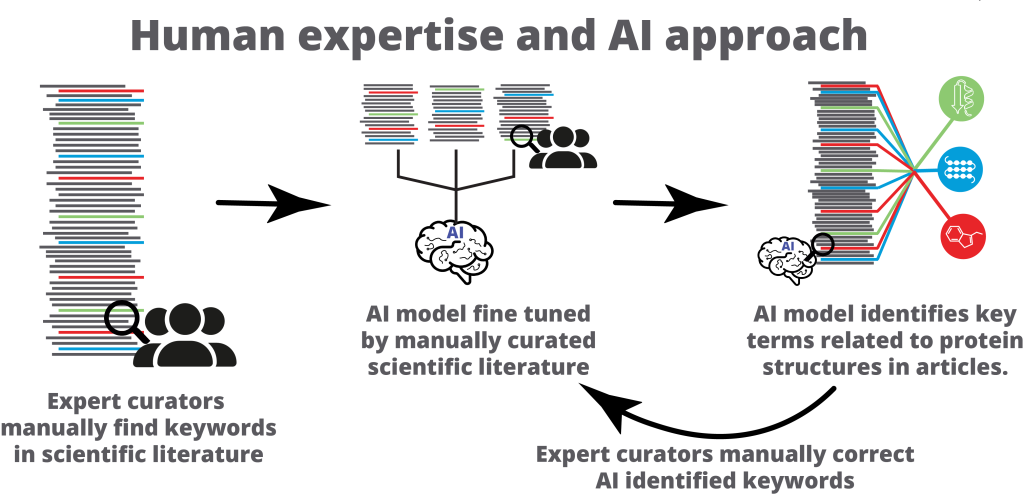
How a novel machine learning system is bridging the gap between advanced models and expert insights to accelerate protein research Proteins are essential molecules with many critical roles in the body. Determining a protein’s 3D structure helps scientists understand its functions within cells. This is crucial for advances in biology, medicine, and drug design.
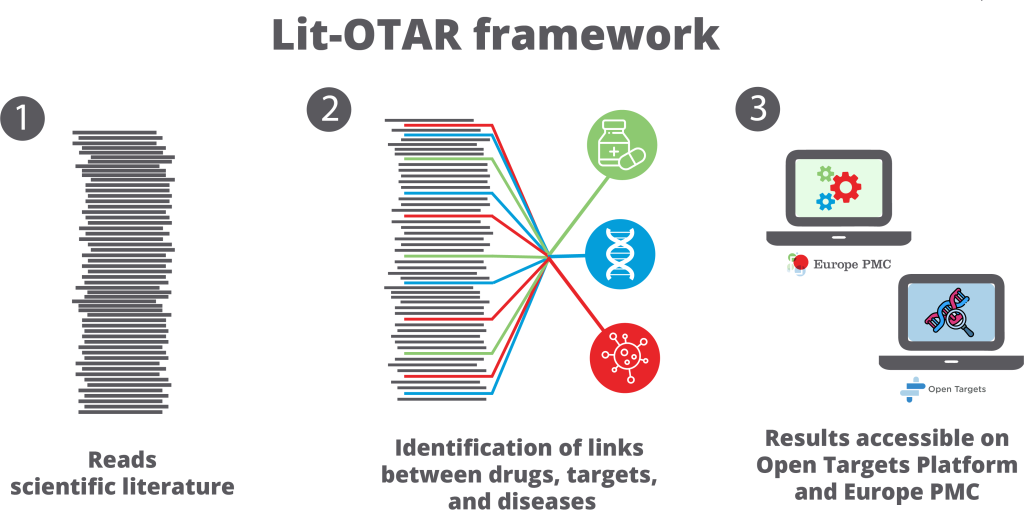
Europe PMC and Open Targets develop Lit-OTAR framework unearthing over 48 million unique associations that can be leveraged for drug discovery Identifying drug targets is a critical and intricate part of drug discovery. This requires scientists to look at many sources of evidence. They use them to find links between drugs, targets, and diseases.
Europe PMC joins the SoFAIR project Modern science increasingly relies on software, from data collection and analysis to modeling complex systems. As part of our mission, Europe PMC integrates open access literature with research outputs, such as data and software, to support innovation. To further this effort we have joined forces with the SoFAIR project, a collaborative initiative to empower reuse of open research software.
**Europe PMC POSI update – 2 years on ** Two years have sailed by since Europe PMC adopted the Principles of Open Scholarly Infrastructure (POSI) in February 2021. POSI is a set of guidelines for open scholarly infrastructure providers and outlines how these organisations should be run and sustained. It offers a framework to uphold transparency and accountability.
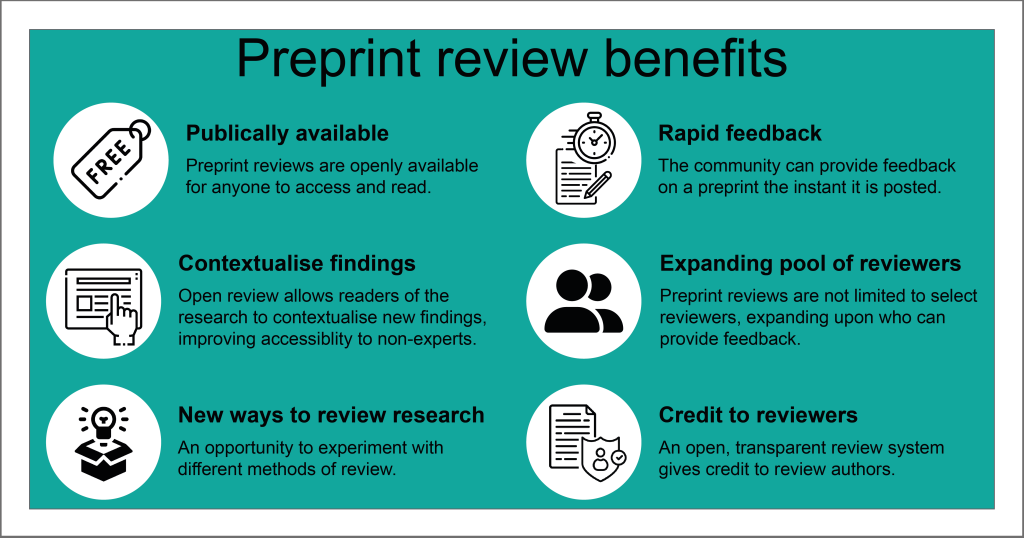
Preprinting has soared in popularity in the life sciences and is increasingly recognised as an excellent method to share research outputs quickly and freely. While preprints have gained popularity, an important consideration is ensuring their scientific quality. This prompted the development of platforms where researchers can comment on, evaluate, and review preprints.
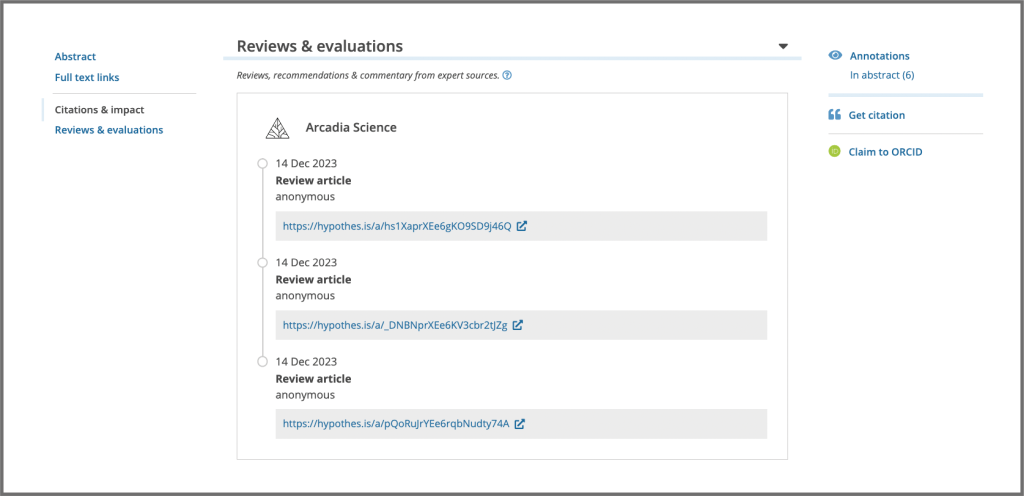
As 2024 begins we reflect on the achievements our team made in 2023 to meet your needs as users. The team’s efforts were concentrated on building trust in preprints, open sourcing code, as well as expanding and improving text-mining capabilities. Preprint highlights
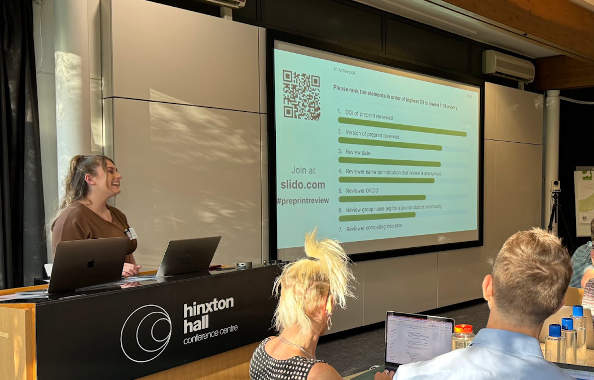
The practice of preprinting in the life sciences has grown rapidly. In addition to accelerating scientific publication, preprinting also has the potential to open new avenues of communication among researchers. For example, preprint peer review offers tremendous potential for changing the culture of scientific assessment, broadening participation, and enhancing the robustness of scholarship.

Along with life science publications, Europe PMC offers a way to search through biomedical grants from Europe PMC funders using the Grant Finder tool. Last year, Europe PMC partnered with the Medical Research Council (MRC), the UK Collaborative on Development Research (UKCDR) and the Global Research Collaboration for Infectious Disease Preparedness (GLoPID-R), to extend its search to include COVID-19 grant data from other funding organisations.
In July 2020, Europe PMC began indexing the full text of COVID-19 preprints. The initiative supported by Wellcome, the UK Medical Research Council, and Swiss National Science Foundation, has now made over 15,300 full text COVID-19 preprints searchable and free to read, alongside peer reviewed articles. Number of full text COVID-19 preprints in Europe PMC by month.